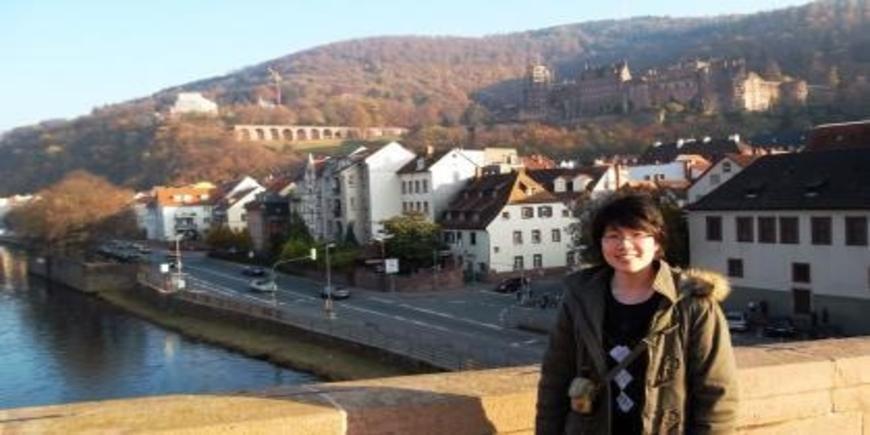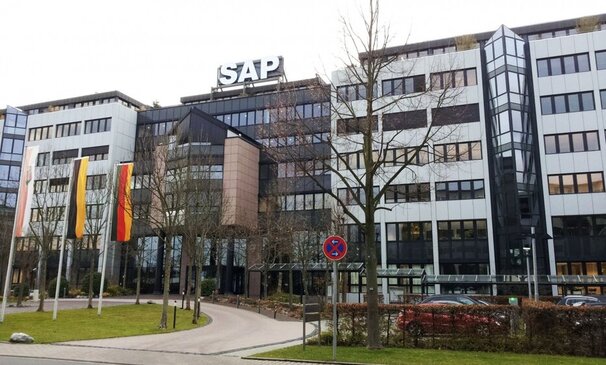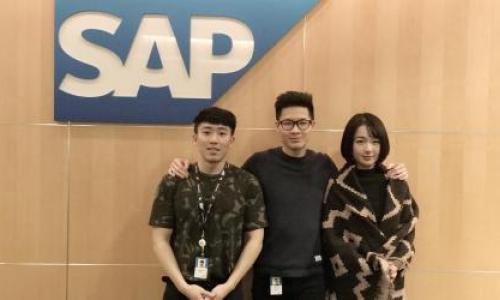
During September and October, 2011, my friends asked me “How are you? How is school?” Those questions are normally the ones university students would ask each other as our daily lives revolve around our academic career.
But the responses do vary from time to time. Instead of the usual “I’m tired. I have this and that due this week - being a SIAT student and all” I smiled and responded “I dropped all my courses this semester. I am going on Co-op.”
“Oh nice! What are you going to do and where?”
“I received this internship as an User Experience Designer on the SAP Business ByDesign team for SAP AG in Germany.”
My friends congratulated me for receiving a great opportunity to go on International Co-op, especially in Europe. And then the next question I would hear is “Sprechen Sie Deutsch? (Do you speak German?)” I have never spoken or studied the language before.
So why did I select Germany? Honestly, International Co-op was the last thing on my mind for a Co-op experience. I wanted to work in Canada to avoid some of the complexity of the process, such as additional paperwork like a work visa or finding a place to live and a language barrier. The main reason I decided to travel for this position is because the job description related to my Bachelor of Science degree in SIAT, with concentrations in Informatics: study of HCI (Human-Computer Interaction) and Interaction Design the most.

It has been two months and I’m still feeling overwhelmed and still adjusting to the culture, lifestyle, and work environment. Usually for your first Co-op work term, you have to adjust from being a regular student, studying and working on assignments that would only impact you and your peers' knowledge or your grade point average, to being an employee, designing and creating products that could impact the lives of millions of people, working eight hours per day, most of the time spent behind your desk, staring at a computer screen, and hopefully being efficient and productive during your work hours. If you decide on an International Co-op, then you need to also focus on adjusting to the living conditions and the culture - especially when you are living by yourself or with flatmates for the first time in a small town, not a city, and away from your immediate family on another continent.
There is also the fact that the only friends you can make are mainly your colleagues, not like going on an exchange where you’re surrounded by students of the same age. My colleagues can communicate with me in English during presentations and project discussions, but during lunch, they speak in their native tongue, German. For most of the time, I can’t participate in the discussions and build rapport with them.
Also, it has been a slow experience. Why would I say that? I like to look towards the future more often than I would like. I like to daydream. At this moment, I see this Co-op as simply one of the steps on my staircase of life. I want it to be over because I want to head home, back to Vancouver, and move on to the next semester because I miss having dinners, watching movies and playing board games with my friends. Luckily, social media has been great for me to help me keep in touch with my friends and family through Facebook, Twitter, Google+ Hangout and Skype.
On the bright side of being on an international co-op, aside from weekend travelling opportunities, I have already made friends from Slovakia, Hungary, India, Australia, Brazil, China, Portugal, and Russia! These are all student interns working for different departments at SAP. We meet with each other on Fridays for the international student lunch. It’s been great to talk about the differences of our home countries and adjusting to a new one so I don’t feel alone in this experience.
With that being said, I am blessed that I came upon this opportunity. I just need to remember to enjoy this experience without stressing out that I need to absorb in everything that I encounter because there is too much to handle during my stay in Germany for 5 months.















